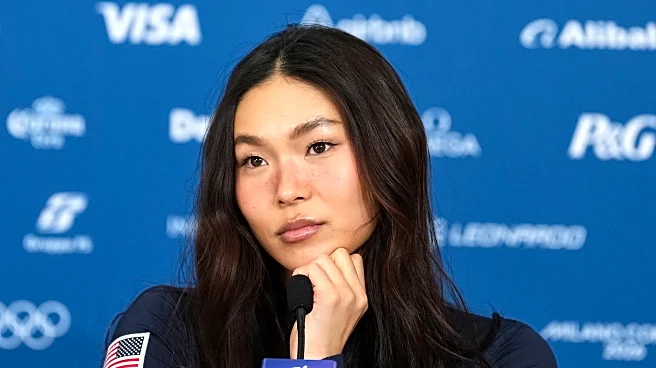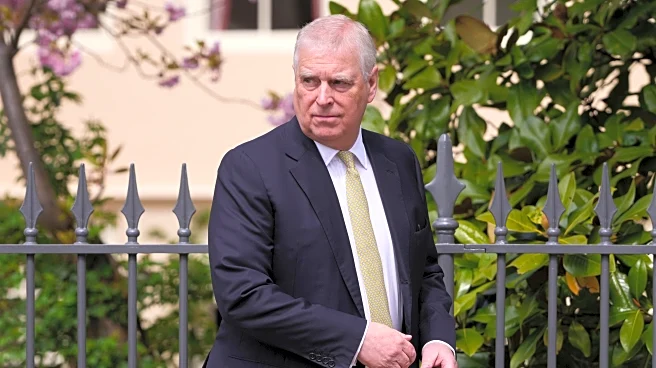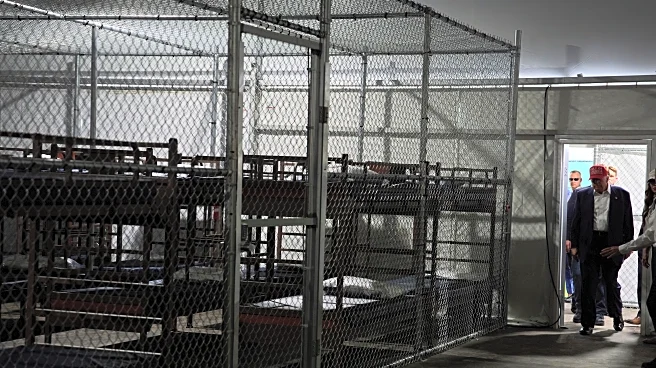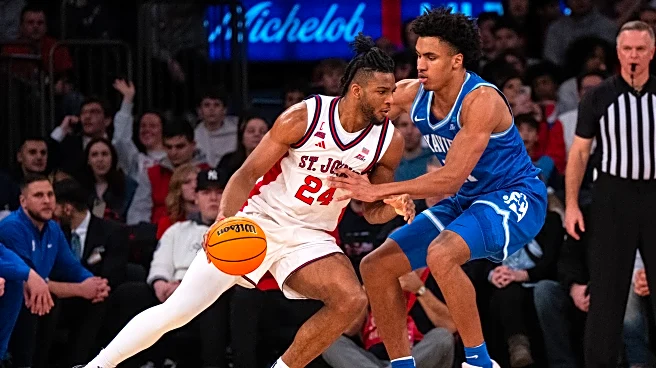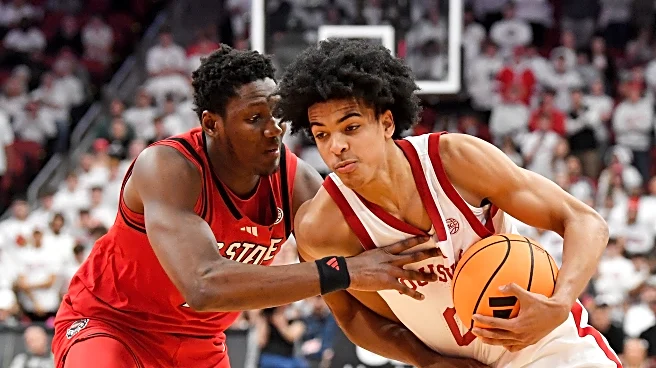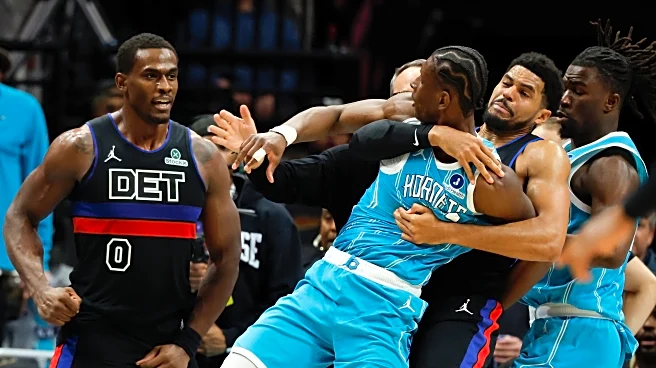What's Happening?
The New York Jets are reportedly considering a major change in their quarterback lineup for the 2026 season. Despite Justin Fields' solid performance, including a 64.1% completion rate and zero interceptions,
the Jets' offensive line has struggled, allowing the fourth-most sacks in the league. With a current record of 1-7, the Jets are exploring options to improve their quarterback situation. Kristopher Knox from Bleacher Report suggests that the Jets might trade Fields, along with draft picks, to acquire Kyler Murray from the Arizona Cardinals. Murray, a two-time Pro Bowl quarterback, signed a $230.5 million contract in 2022 but is currently sidelined due to a foot injury. The Jets have multiple first-round picks in upcoming drafts, which could facilitate such a trade.
Why It's Important?
This potential trade could significantly impact both the Jets and the Cardinals. For the Jets, acquiring a seasoned quarterback like Murray could provide the team with a fresh start and potentially improve their offensive performance. The Cardinals, on the other hand, might benefit from moving on from Murray, especially given his current injury status and the team's disappointing season. This trade could also influence the Jets' strategy in future drafts, allowing them to focus on building a stronger team around a veteran quarterback. The decision could reshape the dynamics of both teams and affect their standings in the league.
What's Next?
If the Jets proceed with the trade, they will need to negotiate terms that protect their future draft interests while securing Murray. The Cardinals will have to decide whether to accept the trade and potentially look for a new quarterback in the upcoming drafts. Both teams will likely assess their current rosters and future prospects before making a final decision. The outcome of this trade could lead to further strategic adjustments for both franchises as they aim to improve their performance in the league.
Beyond the Headlines
This trade scenario highlights the challenges teams face in balancing immediate performance needs with long-term strategic planning. The Jets' willingness to trade Fields, despite his solid statistics, underscores the importance of a strong offensive line and receiver corps in achieving success. For the Cardinals, moving Murray could signal a shift towards rebuilding and focusing on future talent acquisition. The decision could also have broader implications for player contracts and negotiations in the NFL, as teams weigh the risks and rewards of investing in high-profile players.


